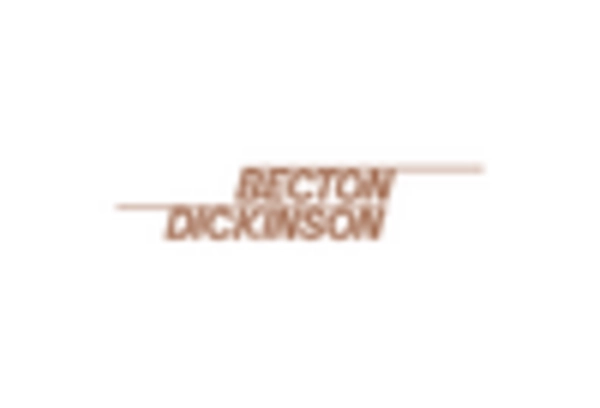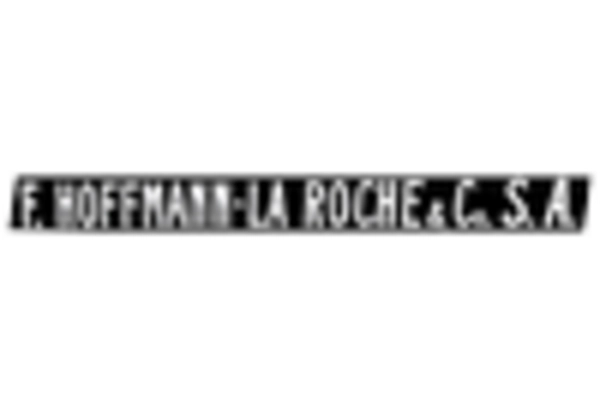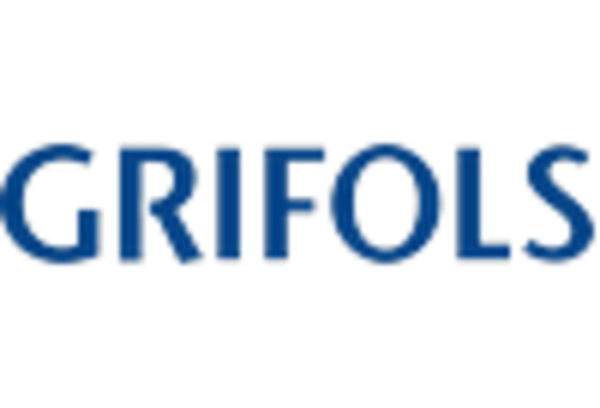Growth in Diagnostic Testing
The blood collection market is experiencing growth due to the rising demand for diagnostic testing. As healthcare systems increasingly emphasize preventive care, the need for accurate and timely diagnostic tests has surged. The American Clinical Laboratory Association reports that the diagnostic testing market is projected to reach $85 billion by 2026, with blood tests accounting for a substantial portion of this growth. This trend indicates a robust demand for blood collection services, as healthcare providers rely on these tests to inform treatment decisions. Consequently, the blood collection market is likely to benefit from this expanding landscape, necessitating advancements in collection techniques and technologies.
Regulatory Support and Standards
Regulatory frameworks and standards play a crucial role in shaping the blood collection market. The US Food and Drug Administration (FDA) and other regulatory bodies establish guidelines that ensure the safety and efficacy of blood collection practices. Recent initiatives aimed at streamlining regulations and enhancing compliance are likely to foster innovation within the industry. By promoting best practices and ensuring high-quality standards, these regulations can enhance public trust in blood collection services. As a result, the blood collection market may experience growth, as healthcare providers seek to align with regulatory expectations while delivering safe and reliable services.
Rising Prevalence of Chronic Diseases
The increasing incidence of chronic diseases in the US is a pivotal driver for the blood collection market. Conditions such as diabetes, cardiovascular diseases, and cancer necessitate regular blood testing for monitoring and management. According to the Centers for Disease Control and Prevention (CDC), approximately 6 in 10 adults in the US have a chronic disease, which underscores the demand for blood collection services. This trend is likely to propel the market forward, as healthcare providers require efficient blood collection methods to facilitate timely diagnosis and treatment. The blood collection market is thus positioned to expand, driven by the need for routine blood tests in managing these prevalent health issues.
Technological Innovations in Blood Collection
Technological advancements are transforming the blood collection market, enhancing efficiency and safety. Innovations such as automated blood collection devices and advanced needle technologies are streamlining the process, reducing patient discomfort, and minimizing the risk of contamination. The integration of digital health solutions, including mobile applications for appointment scheduling and results tracking, is also gaining traction. These innovations not only improve patient experience but also increase the operational efficiency of healthcare facilities. As the blood collection market adapts to these technological changes, it is expected to witness significant growth, driven by the demand for more effective and patient-friendly blood collection methods.
Increased Investment in Healthcare Infrastructure
Investment in healthcare infrastructure is a significant driver for the blood collection market. The US government and private sector are allocating substantial funds to enhance healthcare facilities, particularly in underserved areas. This investment is aimed at improving access to essential services, including blood collection. According to the American Hospital Association, hospitals are projected to invest over $100 billion in capital projects by 2026, which includes upgrading laboratory services. This influx of capital is likely to bolster the blood collection market, as improved infrastructure facilitates better collection practices and expands access to diagnostic testing for a broader population.
















